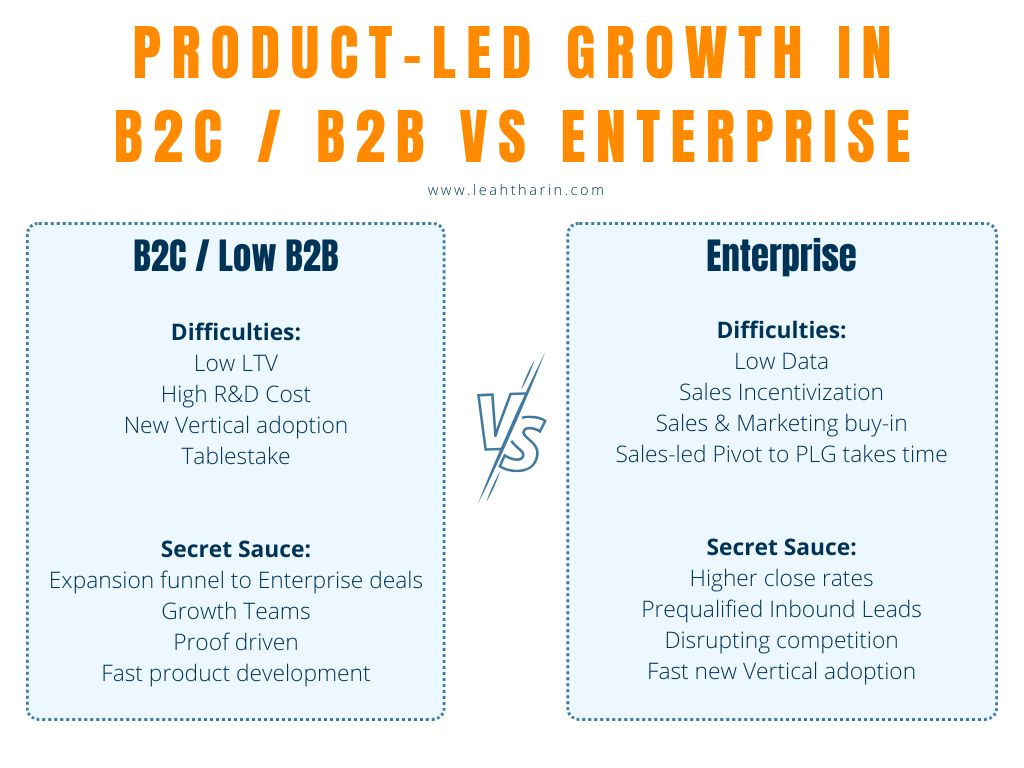Product-led Growth and the Sales-led reality
It's two camps fighting when they should work together.
It shouldn’t be a rivalry, it should be a marriage
"Product-led growth is not applicable to our enterprise business". If I had a $ every time I heard that phrase after being on stage... We are getting there:
Product-led Growth (Showing Value instead of talking about it) to Enterprise buyers is being pulled into reality. It suffers especially for establish…



